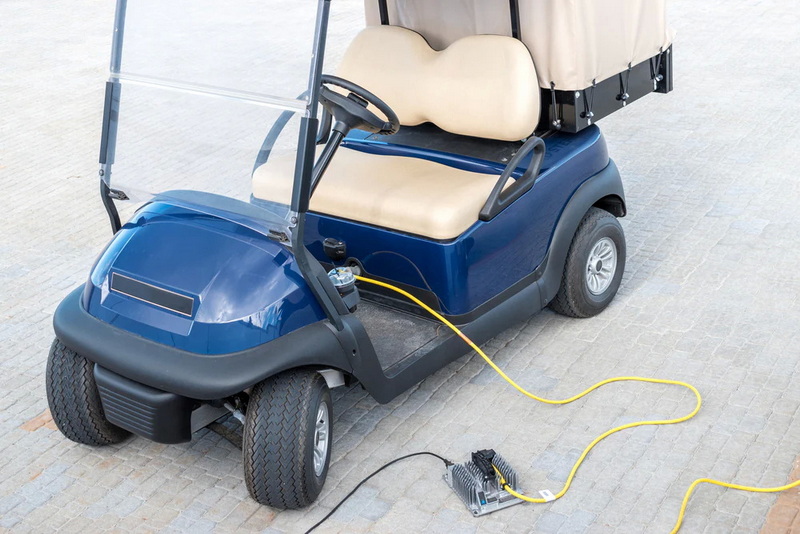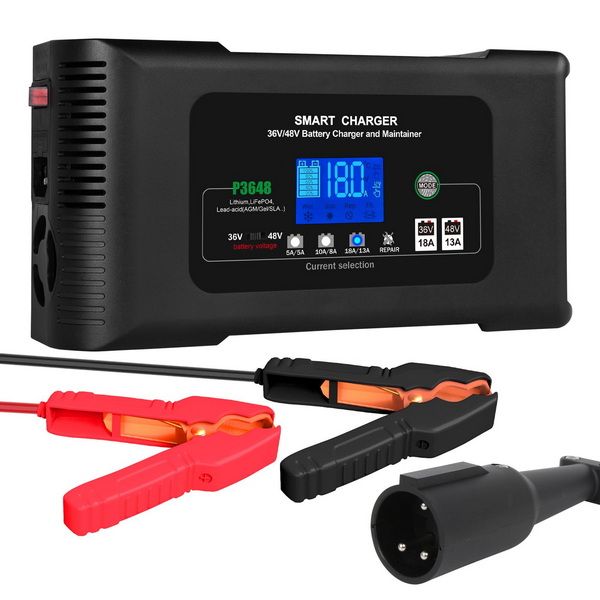Content Menu
● Understanding the Risks
>> Why Do Batteries Catch Fire?
● Preventive Measures
● Best Practices for Charging Golf Carts
● Conclusion
● Related Questions
>> 1. Can I charge my golf cart overnight?
>> 2. What should I do if I smell something burning while charging?
>> 3. How often should I replace my golf cart batteries?
>> 4. Is it safe to charge my golf cart in my garage?
>> 5. What types of chargers should I avoid using?
Electric golf carts have become increasingly popular for their convenience and eco-friendliness. However, with the rise in usage comes the need for awareness regarding potential hazards, particularly fire risks associated with charging these vehicles. This article delves into the causes of fires related to electric golf carts, preventive measures, and best practices for safe charging.

Understanding the Risks
Charging an electric golf cart can pose fire risks primarily due to the batteries used in these vehicles. Most golf carts rely on lead-acid or lithium batteries, both of which can emit flammable gases during charging. The most concerning gas is hydrogen, which is produced when lead-acid batteries are charged. Under certain conditions, hydrogen can accumulate and ignite, leading to dangerous fires or explosions.
Why Do Batteries Catch Fire?
1. Overcharging: When a battery is overcharged, it can heat up excessively, causing the electrolyte inside to boil and produce hydrogen gas. If this gas accumulates in a confined space, it can ignite from a spark.
2. Poor Ventilation: Charging a golf cart in an enclosed space, such as a garage, increases the risk of gas buildup. Without proper ventilation, any spark can lead to a fire.
3. Corrosion and Damage: Corroded battery terminals or damaged batteries can create electrical shorts. Sparks from these shorts can ignite flammable gases.
4. Old Batteries: As batteries age, their efficiency decreases, and they may release more hydrogen gas than newer models. Regularly replacing old batteries is crucial for safety.
5. Improper Charging Equipment: Using chargers that are not compatible with the battery type can lead to overcharging or other electrical issues.

Preventive Measures
To ensure safety when charging your electric golf cart, consider the following preventive measures:
- Charge in Well-Ventilated Areas: Always charge your golf cart outdoors or in a well-ventilated area to prevent gas accumulation.
- Use Quality Chargers: Invest in high-quality chargers that are specifically designed for your type of battery. Ensure they have safety features like automatic shut-off to prevent overcharging.
- Regular Maintenance: Check battery terminals for corrosion and clean them regularly. Inspect batteries for any signs of damage or wear.
- Monitor Battery Levels: Keep an eye on the electrolyte levels in lead-acid batteries and top them off with distilled water as necessary.
- Avoid Charging Indoors: Never charge your golf cart inside a closed garage or near flammable materials.
Best Practices for Charging Golf Carts
1. Follow Manufacturer Guidelines: Always adhere to the manufacturer's instructions regarding charging procedures and battery maintenance.
2. Charge After Each Use: To prolong battery life and reduce risks, charge your golf cart after each use rather than letting it sit for extended periods without charging.
3. Check Connections: Ensure that all connections are secure before charging to prevent sparks from loose wires.
4. Install Smoke Detectors: Consider installing smoke detectors in areas where you charge your golf cart for added safety.
5. Educate Users: If multiple people use the golf cart, ensure they are aware of safe charging practices and potential hazards.
Conclusion
While electric golf carts offer many benefits, it is essential to be aware of the fire risks associated with their batteries during charging. By understanding the causes of potential fires and implementing preventive measures, you can significantly reduce the risk of accidents and ensure safe operation of your electric golf cart.

Related Questions
1. Can I charge my golf cart overnight?
Yes, overnight charging is generally safe if you use a quality charger designed for your specific battery type that includes safety features to prevent overcharging.
2. What should I do if I smell something burning while charging?
If you smell burning or see smoke while charging your golf cart, immediately disconnect the charger and move away from the vehicle. Contact emergency services if necessary.
3. How often should I replace my golf cart batteries?
Typically, lead-acid batteries last about 4-6 years while lithium batteries can last up to 10 years depending on usage and maintenance. Regularly inspect your batteries for signs of wear.
4. Is it safe to charge my golf cart in my garage?
It is not recommended to charge your golf cart in a closed garage due to the risk of hydrogen gas buildup. Always charge in a well-ventilated area.
5. What types of chargers should I avoid using?
Avoid using generic chargers that are not specifically designed for your type of battery as they may not have the necessary safety features and could lead to overcharging or damage.










































